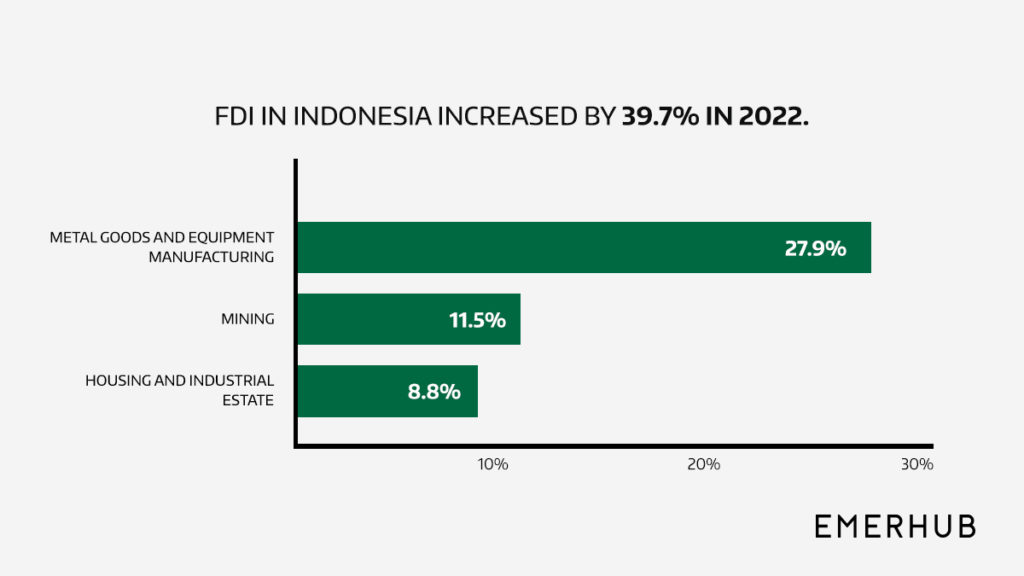Table of contents
Economic growth prediction of Indonesia
The World Bank’s Indonesia Economic Prospects report for June 2022 predicts that Indonesia’s economy would grow 5.1 percent in 2022 and 5.3 percent in 2023, as the pressures of deteriorating global economic conditions, increasing inflation, and tightened external credit begin to weigh.

The Investment Coordinating Board of Indonesia has released the second quarter investment realization report. Foreign direct investment has climbed by 35.5 percent year on year to IDR 163.2 trillion, with the lion’s share coming from Singapore (27.7 percent), China (20 percent), and Hong Kong (11.9 percent). The top three industries attracting foreign investment are metal goods and equipment manufacturing (27.9 percent), mining (11.1 percent), and housing-industrial estate (8.8 percent). Central Sulawesi, West Java, and North Maluku are the top three places in Indonesia where foreign investors are putting their money this quarter.
According to the report, Financial Deepening for Stronger Growth and Sustainable Recovery, Indonesia’s growth momentum in 2021 carried over into early 2022, with the economy growing at a 5% annual rate in the first quarter. Since the end of last year, the rebound in domestic demand has aided the private sector, notably medium-sized, small, and micro businesses, who suffered disproportionately during the pandemic. Domestic recovery also permitted some budgetary consolidation, although monetary policy remained sufficiently accommodating. As a result, bank lending in support of the recovery has increased.
How the Russian invasion of Ukraine affected Indonesia
The Russian invasion of Ukraine, on the other hand, has exacerbated pandemic concerns. Commodity prices have risen and are expected to remain high in 2022-2023. While Indonesia profited from a boost in commodities revenues in the short term, prices have begun to rise, and foreign finance has tightened. This has worsened policy challenges associated with growing energy subsidies, as well as created headwinds for monetary policy.
While energy subsidies can assist keep prices under control in the medium term, the case for subsidy reform remains strong. It is vital to have a plan in place to shift from providing blanket benefits to providing more personalized help to the poor and vulnerable. A stable and well-functioning financial system is also essential for recovering from the COVID-19 crisis and ensuring long-term economic growth, particularly through investments in services such as health care and education.
Conclusion
Although Russo-Ukrainian has inflationary pressure across the world, it is also evident that the war has no significant impact on Indonesia’s economic growth. You can still expand your business in Indonesia without any hassle. To bring this opportunity home, contact Emerhub EOR service and remotely hire Indonesian talent without any hassle.
To learn more, please contact Emerhub.







